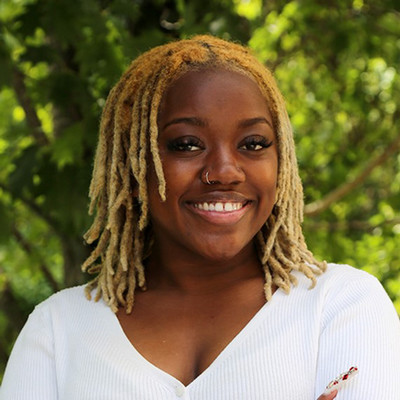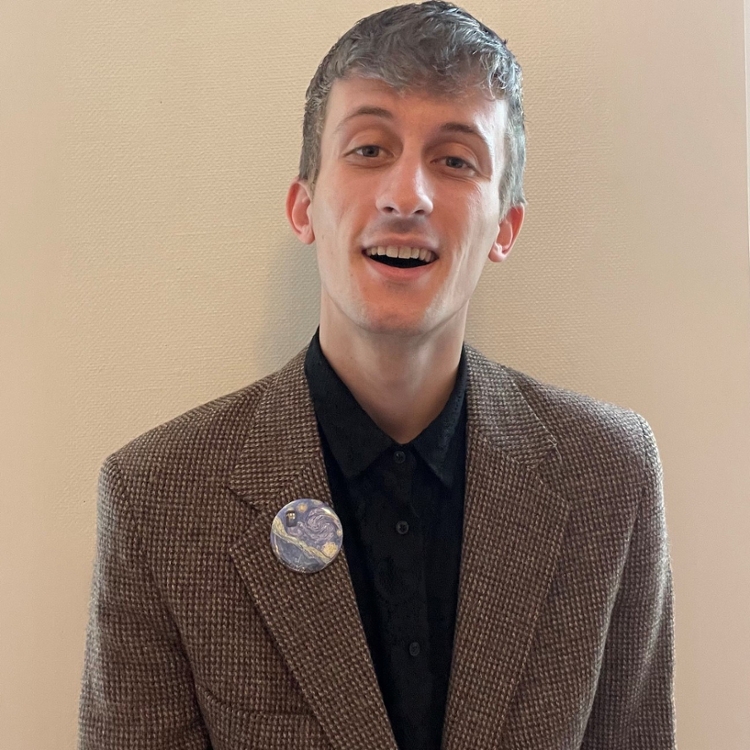 Are you guys still with me in this mini blog series of Meet My Cohort? I hope you are! Huge thank you to Hannah Wilcove for stepping into the admissions blog room. Next up in this series is truly one of my favorite cohort mates in this program. Super honored to be able to sit down and chat with Brian Stanley. Brian is 25 years old, from Clifton Park, New York, and in 2019 he graduated from Boston University (hey fellow Terrier) with a bachelors in Political Science and minor in Sociology. He is currently a 2nd year Master of Public Policy candidate concentrating in Environmental Justice.
Are you guys still with me in this mini blog series of Meet My Cohort? I hope you are! Huge thank you to Hannah Wilcove for stepping into the admissions blog room. Next up in this series is truly one of my favorite cohort mates in this program. Super honored to be able to sit down and chat with Brian Stanley. Brian is 25 years old, from Clifton Park, New York, and in 2019 he graduated from Boston University (hey fellow Terrier) with a bachelors in Political Science and minor in Sociology. He is currently a 2nd year Master of Public Policy candidate concentrating in Environmental Justice.
What did you do before coming to Heller?
Before Heller I was working at the AIDS Action Committee, which was a branch of Fenway Health. I was working as a high-need, low-income HIV case manager for Essex County, basically everything above Boston. I had a case load of about 50 people and I was the only arm of Fenway there, so I was living in Salem for two years: I started this job in 2019 and left in 2021 before starting this program. In addition to this, I was also working in food service at the time, largely because being a case manager doing social service work with a bachelors degree isn’t the greatest pay, and living in Salem, you wouldn’t be able to live off just that. Aside from the difficulty in having to work two jobs, they were both fulfilling opportunities and both of these experiences informed my route today. It was different crowds of people administratively, professionally, and socially.
Why did you choose Heller?
I applied to a lot of programs and this was one of the few policy programs I applied to. I felt between the faculty and Heller’s messaging that even if the experience was not going to be what I expected it to be, that there would be people here with the same interests in environmental, social justice and equity. Prioritizing these interests in different ways, so even if the program wasn’t what I expected it to be I knew the connections and network I would build will still be a solid motivation to continue on in the program. Like the other programs I was applying for I did not think their messaging was on point enough, their diversity statements and program directors did not have that same inclusive language, and I mean it could all be a front, but I think people who would be attractive to these certain elements in a program are the people I would vibe with. I also looked at Heller’s institutes which demonstrated their values and that someone here wasn’t just doing the talk but also walking the walk. I felt like that was another green flag, once again even if the program wasn’t what I expected, I knew there were faculty, staff, and students doing the work is what I can vibe with.
What is your favorite class at Heller?
I hate to be a repeat to Hannah, but my favorite class was Policy Approaches to Gender Based Violence taught by Kaitie Chakoian. The course was really phenomenal: it broke down real complex human concepts around violence, recovery, and healing in ways that were both accessible and still human. I feel some of the other courses here have difficulty translating what it means to be worthy of justice, integrity, and human value to something we can understand. Then we end up in language of federalism when we could be in the language of human terms, but Kaitie really broke down concepts well, she was engaging, and she provide extensive feedback on assignments, which I think highlighted her excellence and commitment to excellence. Super phenomenal and probably my favorite.
What was your most challenging class at Heller?
Thinking about this I break into two categories. I think for me, first, it would be Practicing Social Justice Philanthropy: Purpose, Practice, and Problems taught by Celeste Reid Lee and Sheryl Seller class directly out of the Sillerman Center for the Advancement of Philanthropy. It was intellectually challenging because I did not know anything from this field: I did not understand how philanthropy can relate to social justice, or even if philanthropy could relate to social justice. I thought the speakers were phenomenal but I did find the course to be challenging because of the materials. However, the instructors from the Sillerman Center were amazing in the way they coordinated the course, feedback on material, and really broke down a lot of the concepts. For me, another layer of challenging is a course I am taking right now, which is Environmental and Climate Justice taught by Prakash Kashwan. It is actually a undergraduate class I am taking. The reason why this class is challenging is because its a undergraduate course, and the instructor is working to engage meaningfully with everyone, who are all from different academic levels, and the assignment structures are very different. It’s a lot of reading response, with week to week assignments, which in some ways it becomes regurgitating information instead of synthesizing it so its a completely different flow. He is integrating some elements of graduate courses such as take home exam options to synthesize material and the way he teaches information is wonderful and his linkages of decolonization, capitalism, and climate change is astounding. He himself is great but the structure of the course is what I find challenging.
What are your plans after Heller?
I think I’m going to work on deciding between a career in research versus a career in something on the ground. I do not have anything concrete yet I have been applying though! These are all opportunities to say the least, eventually I may want to pursue a PhD, but I have to really nail down what is worth doing with the limit time that I do have. So for me that is trying to figure out where do my moral and ethics align, because I know ultimately they align with community, justice, and equity, but I have to figure out my role in that conversation. It reminds me of the quote from Audre Lorde, “the masters tools will never dismantles the master’s house” and so like how do you embody that with a masters degree in public policy, right? I have no idea, but I am really excited to find out what that looks like and surrounding myself with people who are dealing with these questions.
Any advice you would like to give prospective students?
It is very critical to give yourself to give yourself as many options as you can because things that you decide are worth doing are worth doing and no matter what decision you’re making, you will think something else may be worth it differently. I think committing yourself to principle of what you want to do and what you want to be are fundamental to succeeding anywhere. So giving yourself the most options, applying to every program, speaking to faculty, and dealing with research is what I would say is the best choice. The worst thing you could do is do one thing and feel trapped. That’s how you lose drive in a program or drive in future decision. Give yourself space to fail, there is literally no one at this school or in this program that has been committed to something 100% percent and all the time. When it comes down to it, you need to be more committed to what those principles are, even if its just making more money in the future, you need to decide if its worth it. That’s my two cents.
Thank you Brian, for stepping into the admission blog room, it is always a pleasure to have a conversation with you! What a fulfilling way to now lead us into a brief intermission of my mini blog series “Meet My Cohort”, but don’t worry I will be back with some more of my classmates and their stories.
